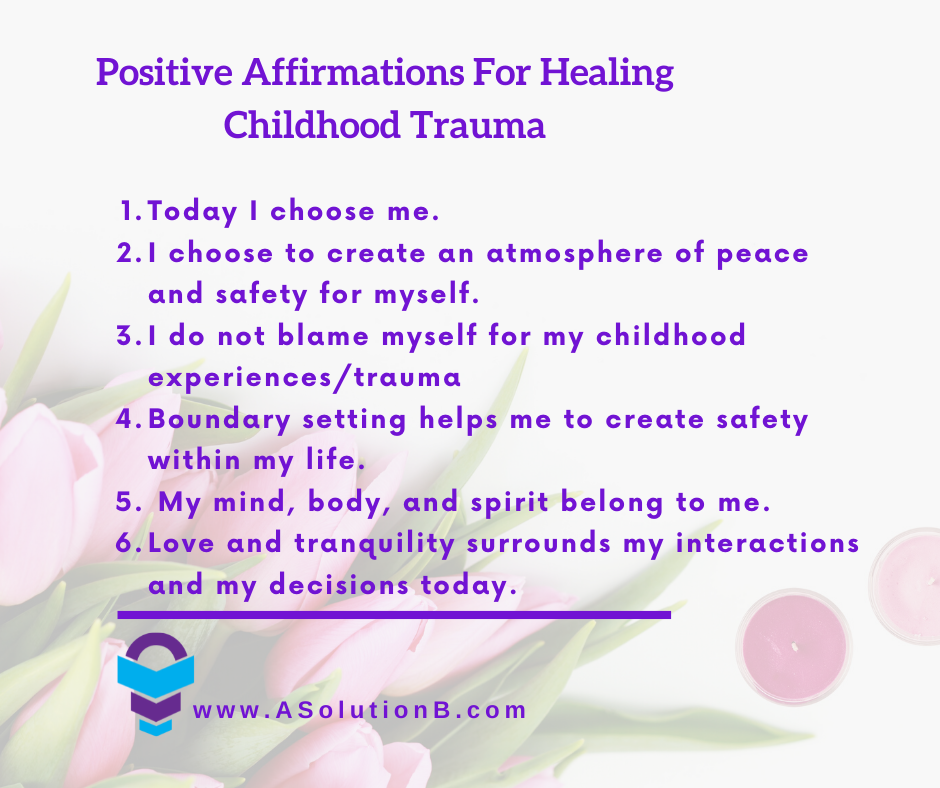What is Trauma? Signs of Acute Stress Disorder and PTSD
Trauma
What is trauma?
Original Article posted on November 29, 2021. This article was updated on September 8, 2023.
Trauma Definition
Trauma is defined as an emotional response to a distressful event such as experiencing a possible threat of death, violence, or a serious injury. However, trauma does not always include violence, for instance experiencing abandonment, not having your emotional needs met, or experiencing food insecurity can also be a form of trauma. Despite trauma being identified as an emotional response, recent studies reveal traumatic experiences produce physical changes in the brain and may activate discomforting sensations in the body.
Three Types of Trauma
Acute Trauma refers to a traumatic event that has occurred due to a single event. For instance, acute trauma can come in the form of a car accident.
Chronic Trauma refers to experiencing or witnessing prolonged trauma for a significant amount of time. Domestic violence is an example of chronic trauma.
Complex trauma is experiencing or witnessing multiple traumatic experiences. This can include distressful events that are similar or a variety of emotionally painful events. An example of complex trauma would be experiencing a robbery, a car accident and later witnessing a friend being physically threatened.
recent studies reveal traumatic experiences produce physical changes in the brain and may activate discomforting sensations in the body.
Diagnosis-Related to Trauma
Acute Stress Disorder (ASD) occurs when a person experiences symptoms similar to Posttraumatic Stress Disorder (PTSD) within the first month of experiencing a traumatic event.
For an individual to be diagnosed with PTSD, a person must have experienced a traumatic event, witnessed a traumatic event, or had repeated exposure to a traumatic event, which may include hearing graphic detail of the occurrence. With PTSD emotional responses to these adverse experiences are often long-term, lasting beyond the first month of the traumatic event.
Just a side note: A person can experience PTSD even if they have never had initial symptoms right after the event. Alternatively, a person can experience Acute Stress Disorder for one month, followed by ongoing symptoms of PTSD.
Related Article: 25 Positive Affirmations To Heal Childhood Trauma
Signs and Symptoms
Symptoms related to ASD and PTSD include but are not limited to:
Anxiety
Low mood
Hypervigilance ( Easily Startled)
Difficulty going to sleep, sleep disturbances
nightmares
Poor concentration
Recurrent dreams or Flashbacks
Zoning out
Negative Thoughts about Self, other people, and/ or the world
Avoidance of stimuli
Irritability
(this is not an exhaustive list, you could find more on Mayo Clinic)
For some individuals, symptoms may be minimal until they experience a trigger, such as a holiday event. This is when it is best to explore 5 Tips To Survive the Holidays, where you can develop a plan to deal with people, places, or things that trigger you.
Thoughts of Suicide
Many individuals who experience trauma often experience suicidal ideation. If you are experiencing thoughts of suicide, getting support may benefit you. Mayo Clinic has provided the following resources to seek support:
Reach out to a close friend or loved one.
Contact a minister, a spiritual leader, or someone in your faith community.
Call a suicide hotline number — in the United States, call the National Suicide Prevention Lifeline at 1-800-273-TALK (1-800-273-8255) to reach a trained counselor. Use that same number and press 1 to reach the Veterans Crisis Line.
Make an appointment with your doctor or mental health professional.
Other resources may include:
Texting a crisis line- by texting the Crisis Text Line at 741-741
Seek a mental health professional who is knowledgeable of trauma-informed care.
If you currently attend counseling at a mental health agency or private practice, ask if they have an On-call contact number or after-hours line for clients.
If you are employed, ask your employer if they have an Employee Assistance Program (EAP) where you can obtain several free counseling sessions.
If you feel you cannot maintain your safety, please visit the nearest hospital to get more immediate support.
If you are experiencing symptoms that are interfering with your daily functioning and daily interactions or having thoughts of harming yourself it is best to obtain support
Related Blog Article: 25 Positive Affirmations To Heal Childhood Trauma
Start Today
Good news! Since you are reading this blog, you have come to a good place where you can start working on your healing journey today. Disclaimer: The tools provided in this blog article are not to be substituted as professional assistance, however, the tools may be an excellent complement to your treatment. When experiencing emotional distress, one skill you may be able to utilize is the S.T.O.P. for Distress Tolerance skill. To help challenge negative self-talk using Positive Affirmations to Heal Childhood Trauma can be a source of empowerment.
Experiencing PTSD can be exhausting and at times you may feel alone. It may be valuable to hear another’s PTSD story.
Lastly, we are often hard on ourselves especially when we feel as though we do not have control of every aspect of our being. When this expectation does not match our reality, we question if we are “crazy” or blame ourselves, or we become hesitant to seek counseling.
It’s important for you to know that counseling is for everyone, you don’t have to be “crazy” to engage in counseling.
Summary
Trauma is a distressing event one may experience. Each individual is different, some people develop Acute Stress Disorder symptoms within the first month of experiencing a traumatic event, while others may develop Posttraumatic Stress Disorder more than a month after a traumatic event. Due to the complexity of the brain and the human body, medical professionals aren’t entirely sure why some individuals develop Acute Stress Disorder or Posttraumatic Stress Disorder, while other people may not develop symptoms related to trauma.
If you are experiencing symptoms that are interfering with your daily functioning and daily interactions or having thoughts of harming yourself it is best to obtain support sooner rather than later. There are many resources available to support you in your healing journeys such as the Crisis Text Line, your Spiritual community, and even the National Suicide Prevention Lifeline in English or Spanish. If you are already engaging in counseling services be sure to ask your therapist if there is an after-hours crisis line that may be used for additional support.
There is an abundance of resources for mental health support. With that said, if you have any resources that have been a support for you be sure to note them in the comments below.
Written by: Reynelda Jones, LMSW, CAADC,ADS, CIMHP
Owner and Therapist of A Solution B, LLC
If you're in need of working through some issues and feel you would benefit from a holistic therapeutic approach, Contact me today for a session.
Join my Facebook Community, The Wellness Solution: Mind. Body. Home . The Wellness Solution community is open to women who seek wellness using holistic approaches by taking steps to address their mind, body, and home. In this group, members ask and answer questions, encourage, and support one another.
To learn more about A Solution B, LLC click here
Book an appointment here I like it, I love it, Gotta have it
Subscribe to the Chat Trap blog
Connect with us
DISCLAIMER FOR A SOLUTION B, LLC
The Website may discuss topics related to health, fitness, nutrition or medicine. This information should not be treated as medical advice. This blog does not substitute face-to-face medical or therapeutic services. If you require any more information or have any questions about our site's disclaimer, please feel free to contact us by email at asolutionb@gmail.com
DISCLAIMERS FOR A SOLUTION B
All the information on this website - https://www.ASolutionB.Com - is published in good faith and for general information purpose only. A Solution B does not make any warranties about the completeness, reliability and accuracy of this information. Any action you take upon the information you find on this website (A Solution B), is strictly at your own risk. A Solution B will not be liable for any losses and/or damages in connection with the use of our website. Our Disclaimer was generated with the help of the Disclaimer Generator and the Disclaimer Generator.
From our website, you can visit other websites by following hyperlinks to such external sites. While we strive to provide only quality links to useful and ethical websites, we have no control over the content and nature of these sites. These links to other websites do not imply a recommendation for all the content found on these sites. Site owners and content may change without notice and may occur before we have the opportunity to remove a link which may have gone 'bad'.
Please be also aware that when you leave our website, other sites may have different privacy policies and terms which are beyond our control. Please be sure to check the Privacy Policies of these sites as well as their "Terms of Service" before engaging in any business or uploading any information.
CONSENT
By using our website, you hereby consent to our disclaimer and agree to its terms.
UPDATE
Should we update, amend or make any changes to this document, those changes will be prominently posted here.
Follow A Solution B
Shop Products
You May Like:




